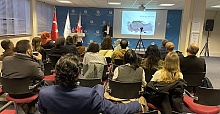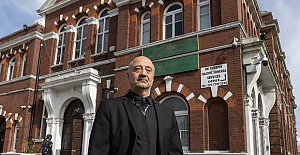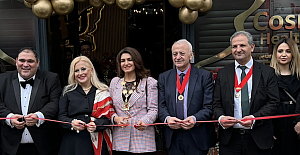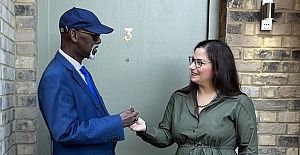A Concise History of the Arabs John McHugoHistory was one of my favourite subjects at school and although it ended with “The Causes of the First World War” it gave us boys insights into the story of Europe (including Russia), Imperial China and the Boxer Rebellion, and of course the British Raj in India. But as a I recall no mention was ever made of the Arabs. It was if they were of no importance, or at least peripheral. So it was much later that I discovered the extraordinary contribution the Arab world made to civilization, from Algebra to music therapy. While Europe was in the Dark Ages, Baghdad was a centre of learning that not only preserved much of what the Romans and Ancient Greeks had produced but added to it. And Moorish Andalus and its great cities of Cordoba and Granada were legendary in their degree of artistry, philosophy and tolerance, centuries before the European Enlightenment. So there is every good reason why adults as well as children in the West should learn about the Arabs, though I suspect the motivation these days might be more linked to a desire to understand the social and political turmoil taking place in so much of the Middle East and North Africa, as well as the rise of militant Islamism. There have been a few, good single volume histories of the Arabs in English, notably by Albert Hourani and my old friend Peter Mansfield. But both died long before the recent Arab awakening or indeed the rise of petrol and gas states such as Qatar. So the publication of John McHugo’s A Concise History of the Arabs (Saqi, £20) is timely. John and I were at Oxford University’s Oriental Institute together (though I was reading Chinese and Japanese while he did Arabic) and our paths have repeatedly crossed, more recently through the Liberal Democrats, and in particular the Liberal Democrat Friends of Palestine (which he chairs). His book has the merit of being both erudite and accessible; his command of the subject is self-evident but he tells a story rather than giving a lecture. Inevitably a sizable proportion of the book relates to Islam; not all Arabs are Muslims, but most are, and the spread of both the Arab people and the Arabic language was intimately linked to Islam and the Qur’an. John is strong in his analysis of the European colonial period, especially in the Levant, its legacy and the later rise of various types of Arab nationalism. Many of the names of Arab political figures of the second half of the 20th century will be familiar to the general reader, as so many of them were around for such a long time. And that, of course, is a major reason why a new, angry, literate and often unemployed younger generation, from Tunisia to Yemen, decided enough was enough.
A Concise History of the Arabs
05 Ağustos 2013 Pazartesi 11:30
reads.




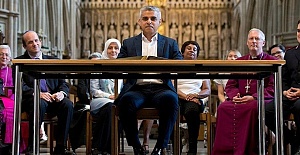 The candidates vying to be the next London mayor
The candidates vying to be the next London mayor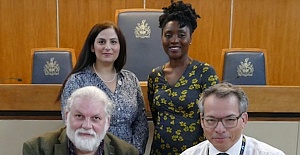 Enfield Council commits to anti-racism and diversity pledge
Enfield Council commits to anti-racism and diversity pledge President Erdogan promised supporters his party would learn its lessons from the defeat
President Erdogan promised supporters his party would learn its lessons from the defeat Mayor of London and London Assembly elections
Mayor of London and London Assembly elections Off duty Police sergeant Eren Emin catch suspected thief while on stag do
Off duty Police sergeant Eren Emin catch suspected thief while on stag do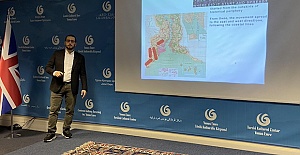 A Century of Urban Transformation, Istanbul’s Evolution
A Century of Urban Transformation, Istanbul’s Evolution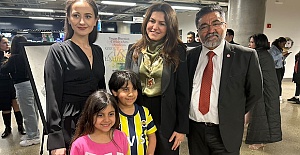 Future Painters Exhibition at Tottenham Hotspur Stadium
Future Painters Exhibition at Tottenham Hotspur Stadium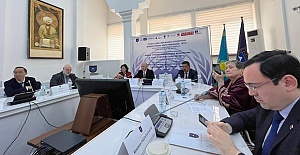 Models of Teaching International Journalism for Sustainable Development
Models of Teaching International Journalism for Sustainable Development English Premier League leaders Arsenal will visit title contenders
English Premier League leaders Arsenal will visit title contenders Liverpool meet Atalanta and West Ham face Bayer Leverkusen
Liverpool meet Atalanta and West Ham face Bayer Leverkusen Arsenal face Bayern Munich and Manchester City play Real Madrid
Arsenal face Bayern Munich and Manchester City play Real Madrid UK Transfer deadline day, the transfer window closes tonight
UK Transfer deadline day, the transfer window closes tonight Petrol prices on UK forecourts hit 150p a litre
Petrol prices on UK forecourts hit 150p a litre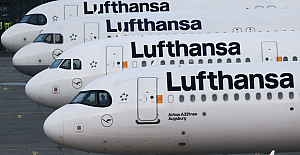 Europe's travel strikes: Flight and train disruption you can expect in April
Europe's travel strikes: Flight and train disruption you can expect in April Enfield Council website achieves digital inclusion recognition
Enfield Council website achieves digital inclusion recognition Enfield Council’s Planning Enforcement team goes from strength to strength
Enfield Council’s Planning Enforcement team goes from strength to strength



